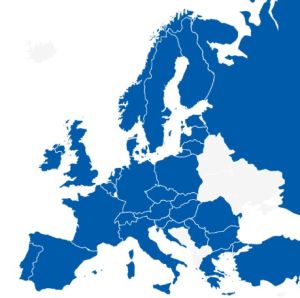European

European, or individuals from the continent of Europe, embody a rich tapestry of cultures, languages, and histories. Europe, known as the cradle of Western civilization, has profoundly influenced global developments in art, science, politics, and philosophy. This article delves into the cultural aspects, lifestyle, and significance of Europeans in the modern world.
Culture and Languages[edit | edit source]
Languages[edit | edit source]
Europe is renowned for its linguistic diversity, with many languages spoken across the continent, including:
- English: A global lingua franca and the official language in countries such as the United Kingdom and Ireland.
- French: Widely spoken in France, Belgium, Luxembourg, Switzerland, and parts of Canada and Africa.
- German: The primary language of Germany, Austria, Switzerland, and Liechtenstein.
- Spanish: The official language of Spain and widely spoken in Latin America.
- Italian: The official language of Italy and parts of Switzerland. Additionally, Europe boasts numerous other languages, such as Russian, Portuguese, Dutch, Polish, and regional languages like Catalan, Basque, and Gaelic.
Art and Literature[edit | edit source]
Europeans have made significant contributions to global art and literature. From the classical works of Homer and Virgil to the Renaissance masterpieces of Shakespeare, Dante, and Cervantes, European literature is rich and varied. Modern literary figures such as Franz Kafka and Albert Camus continue this tradition of profound and influential writing.
European art spans numerous styles and periods, from the classical sculptures of Ancient Greece to the Gothic cathedrals of the Middle Ages and the Renaissance masterpieces of artists like Leonardo da Vinci and Michelangelo. Modern art movements such as Impressionism and Surrealism were also born in Europe, with artists like Vincent van Gogh and Pablo Picasso leading the way.
Lifestyle and Society[edit | edit source]
Education and Healthcare[edit | edit source]
Europe is known for its advanced education and healthcare systems. Countries like Germany, Finland, and the Netherlands offer high-quality education, providing students with opportunities for comprehensive learning and personal development. European healthcare systems are also highly regarded for their quality and accessibility, ensuring that citizens have access to essential medical services.
Economy and Technology[edit | edit source]
Europeans play a crucial role in the global economy. The continent is home to many major corporations and is a hub of technological innovation and industry. Countries such as Germany, Sweden, and the United Kingdom lead in fields like information technology, automotive manufacturing, and renewable energy.
Global Importance[edit | edit source]
European Union (EU)[edit | edit source]
Europeans are known for their cooperation and integration through the European Union (EU). The EU is a political and economic union of 27 member states, promoting cooperation and sustainable development across the region. The EU plays a significant role in the global economy and is a key partner in international issues such as climate change and human rights.
Culture and Tourism[edit | edit source]
Europe is a top tourist destination, attracting millions of visitors each year with its rich history, cultural landmarks, and natural beauty. Cities like Paris, Rome, and Barcelona are famous for their historical sites and unique architecture, while regions like the Alps and the Mediterranean coast offer stunning natural attractions.
Conclusion[edit | edit source]
Europeans, with their diverse cultures and lifestyles, have made and continue to make significant contributions to global development. Their spirit of cooperation and innovation not only enriches global civilization but also helps address contemporary challenges. Understanding Europeans and their role in the world allows us to appreciate and learn from their remarkable achievements.